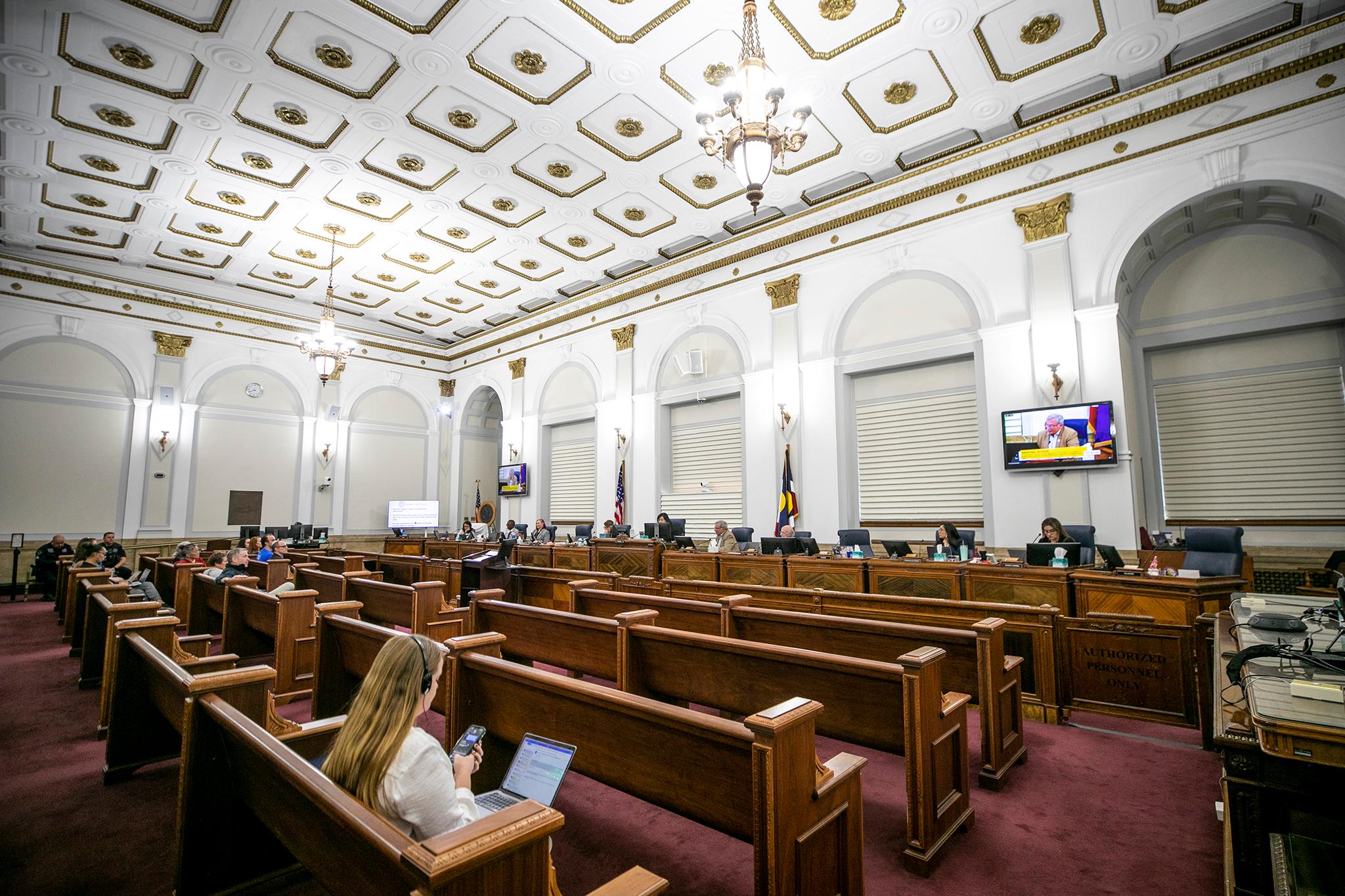Denver City Council wants Mayor Mike Johnston to prioritize spending city money on public safety, homelessness and housing, local businesses, climate initiatives, customer service, health services, child care, and transportation next year.
If that sounds familiar, it’s because City Council’s budget priorities are nearly identical to those submitted to the mayor last year and the year before.
“Foremost is our shared concern in addressing homelessness in our city,” City Councilmembers wrote in a joint letter to Johnston last week.
They wrote that Denver must focus not just on emergency shelter but on preventative measures like rental assistance and wraparound services like substance abuse treatment.
Also new in the last two years is Council’s request for sustained funding for new immigrants, an issue that became more urgent as hundreds of people began arriving in Denver in the fall 2022. This year, City Council is looking beyond emergency intake and shelter services to supporting new immigrants looking to build lives in Denver.
“While we expect continued funding for the migrant response, we also hope to see comprehensive support for facilitating their transition into work life,” City Council wrote in their letter.
But how much funding will be available, for new immigrants or City Council’s other priorities, is unclear. In April, Johnston asked City Council to cut $45.5 million from the 2024 budget to fund the Denver Asylum Seekers Program. That has included things like cutting Department of Motor Vehicle hours, pausing hiring for vacant and new positions across city agencies, travel cuts and deferred projects.
While most priorities remain similar to last year, City Council placed new emphasis on issues like addiction and child care.
The letter also calls for increased funding for Denver Health, which continues to face a looming budget crisis over increasing costs of uninsured care. Another new focus point includes money for children and families, including senior support and child care. One suggestion includes looking into a sugary drink tax to fund youth initiatives (in March, City Council passed a ban on including sugary drinks in discount kids meals).
City Council also sets a specific goal for improving transportation safety: reducing traffic deaths by 25 percent by the end of 2025. It’s a tall order; despite committing to ending traffic deaths by 2030, traffic fatalities hit a two-decade high in recent years. Traffic deaths have also risen nationwide.
Many of City Council’s other priorities remain similar to previous years.
Here’s the full list:
- Strengthen community safety by engaging directly with neighborhoods and ensure investment in community-supported, anti-racist, public health strategies.
- Empower the community and improve customer service by sharing information, engaging, and collaborating with residents.
- Ensure the people of Denver are housed by improving the housing pipeline and ensuring the diversity and stability of housing. Meet the needs of those experiencing homelessness or who are vulnerable to homelessness and implement proven and innovative methods to mitigate and reduce involuntary displacement.
- Incubate city-wide business and labor infrastructure and our network of supportive community organizations. Empower workers, sustain a thriving workforce, and support our small and local business sectors.
- Treat climate change as an emergency. Protect our natural environment through action and investment. Mitigate harm in areas of environmental injustice.
- Increase access to physical and mental health, and addiction and substance use resources. Expand investments and collaboration between providers and partners to achieve a seamless continuum of services.
- Invest in Denver's children, youth, and families. Support, educate, and engage them to meet their multi-faceted, multigenerational needs.”
- Create complete and safe multimodal transportation connections. Improve Denver's infrastructure. Reduce traffic deaths by 25 percent by the end of 2025.
While 2025’s budgeting process is well underway, Johnston will not present his formal budget to the public until the fall. City Council will hold a series of budget hearings, hear from the public and can vote on amendments before voting on the final version of the budget.













